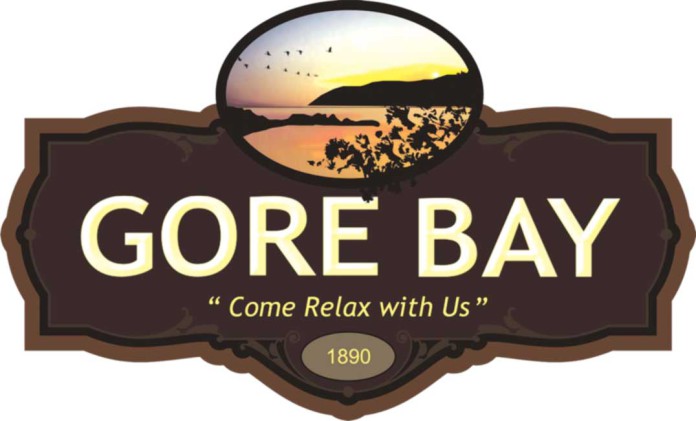OTTAWA—Lawyer David C. Nahwegahbow is a long-time advocate for the rights of First Nations people. He has litigated or negotiated some of the most important Aboriginal law cases in Canada. On June 16, he was presented with the degree of Doctor of Laws, honoris causa (LLD) by the Law Society of Ontario.
The Law Society awards honorary doctorates each year to distinguished individuals in recognition of outstanding achievements in the legal profession, the rule of law, or the cause of justice. As one of Canada’s leading Indigenous lawyers, Mr. Nahwegahbow has made it his focus to address systemic disadvantages and barriers facing Indigenous peoples in Canada. He has represented First Nations in land claims, Treaty and Aboriginal rights, title cases, and has appeared in courts at every level on a wide range of Indigenous legal matters, including at the Supreme Court of Canada in landmark Aboriginal law cases such as Tsilhgot/in. Mr. Nahwegahbow is originally from Whitefish River First Nation (Birch Island).
He has served in many roles, including consultant for the Law Reform Commission (1985) and Co-Research Team Leader on lands and resources for the Royal Commission on Aboriginal Peoples (1993). He was a member of the International Union for Conservation of Nature (IUCN) Specialist Group on Indigenous Peoples and Environmental Law (2001) and was Co-Chair on the Joint Committee of Chiefs and Experts on Recognition and Implementation of First Nations Government for the Assembly of First Nations (2006). Mr. Nahwegahbow has also been an active advocate, most recently in proceedings before the Canadian Human Rights Tribunal on discrimination against First Nations children in childcare.
Another example of his decades-long advocacy is his involvement in the current litigation involving 21 First Nations against Canada and Ontario alleging breach of treaty, breach of fiduciary duty and failure to uphold the honour of the Crown for failing to comply with the Robinson Huron Treaty’s annuity augmentation clause. Successful thus far, this case has the potential to benefit approximately 30,000 annuitants and will impact the course of future Aboriginal law proceedings across Canada. Ontario has recently been granted leave to appeal a high court (Ontario) finding in the Huron and Robinson treaties area favour).
Mr. Nahwegahbow received his LLB from the University of Ottawa in 1980 and was called to the Bar 40 years ago, in 1982, and went into law practice right after his call. He is a founding partner of Nahwegahbow, Corbiere Genoodmagegijk. He was informed of the honour about a month ago and was asked to speak at the Call to the Bar in Ottawa as part of convocation.
“I looked young, had no experience, and I very much wanted to be older and look older. What can I say? I got my wish,” he quipped. His first message to the candidates? “Be careful what you wish for.”
His main message, however, was about justice, or one particular aspect of justice: reconciliation. “No matter what field of law you decide to pursue, all of you, all of us, have an opportunity and a role to play in advancing the project of reconciliation with Indigenous peoples,” he said, defining reconciliation as “righting past wrongs.”
“It is about making sure that Indigenous people have a rightful place in this country: socially, culturally, economically, legally and politically,” he said.
He pointed out that Indigenous peoples are the most impoverished, suffer the worst health conditions, have the most kids in care, are the most likely to die young and the most likely to die violently, especially Indigenous women and girls. As well, Indigenous people have the highest incarceration rates.
“Indigenous people did not get this way by accident or by choice,” Mr. Nahwegahbow said. “No individual or community would knowingly choose such an outcome. And history bears out the fact that it was no accident. The reality is that Indigenous peoples welcomed people to their lands and got disadvantaged in the process.”
He spoke about the devastating impacts of colonialism: how the imposition of the Indian Act undermined systems of Indigenous government and imposed regulations to try and define Indians out of existing. “Indigenous peoples have been dispossessed of their lands, something central to the culture and spiritual beliefs of all Indigenous peoples,” he said. “In some cases, it was done without the pretext of treaties, like here in Algonquin territory, and in other areas it was done through treaties with minimal consideration; even in those instances, governments have failed to abide by the treaty terms, as is the case of the Robinson Treaties, where the Crown has failed to augment treaty annuities (Restoule v. Canada and Ontario).”
He talked about the impact of residential schools and the continued impact of intergenerational trauma, made worse, he said, “because government policies and programs tend to perpetuate the historical disadvantages and so, today, the rate of children being removed from their home is as high as the residential school era.”
“In many ways, it is a wonder that Indigenous peoples have managed to survive,” said Mr. Nahwegahbow. “Reconciliation is one of the big issues facing the country. What can you do to achieve it?”
He urged the candidates to be open-minded, “which is what we should all do as lawyers anyway,” and to avoid stereotyping of Indigenous peoples. He suggested they read about the issues and history of Indigenous peoples in Canada because the story of Canada includes Indigenous peoples, adding the true story is being told by Indigenous scholars who write for the Indigenous perspective “about our history, art history and Indigenous legal orders.”
Mr. Nahwegahbow also encouraged the candidates to consider practicing in the field of Aboriginal law, “a developing and rewarding area of law.”
He returned to the land acknowledgement he had made at the start of his address, as he had a story to share. As a young lawyer in Ottawa, he was acting for an Algonquin First Nation community that was fighting with the federal government. The government was not listening, so they travelled to Ottawa and pitched their tents on Parliament Hill. “Of course, their tents were seized,” Mr. Nahwegahbow said. “Rather quickly too, compared to recent protests, and they were all charged by the RCMP under the Public Works Nuisance Regulations.”
It was early fall and this First Nation was a traditional community that engaged in hunting and fishing. “We made an application and we got the tents back because they needed them for traditional pursuits. Next, we had to defend the nuisance charges,” Mr. Nahwegahbow continued.
The regulations were passed under the Public Works Act, pursuant to Canada’s authority as owner of Parliament Hill. “Our defence was, you don’t own Parliament Hill,” he said. “The Algonquins do.”
Canada eventually stayed the charges.
“What’s the message in that story?” he asked. “If you are acting for Indigenous peoples, don’t be afraid to challenge the status quo. Moreover, and this relates to land acknowledgements, if you are going to say it, make sure you both mean it. It’s interesting now that people, including political leaders, are acknowledging that this territory is unceded Algonquin territory. Yet the Aboriginal title claim of the Algonquin peoples in both Ontario and Quebec has not been resolved.”
Mr. Nahwegahbow offered one final word of advice: “Have a good support network of family and loved ones to support you and keep you balanced along the way.”
He acknowledged how fortunate he was to have had supportive family, friends and support staff along the way.
Mr. Nahwegahbow is Anishnaabe from Whitefish River First Nation and is the son of Adam and Leona Nahwegahbow. He and his wife, Lois Jacobs from Kahnawak, Quebec, have two children, Alexandra and Nicholas, and one granddaughter, Joni Nahwegahbow.




